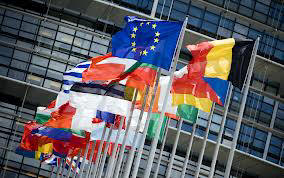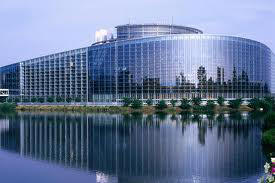|

Will independence mean that Scotland just
swaps Westminster rule for Brussels rule?
Itís an argument I hear raised quite a lot.
Not every seeker of Scottish independence wants to be part of the
European Union.
Some people argue: ďLetís leave the EU and join the EEA or EFTA Ė Norway
and Switzerland are doing fine without EU membership.Ē
So whatís wrong with this suggestion? In
fact, itís based on a misunderstanding of Norwegian and Swiss
relationships, in particular with the EU.
Norway pays about Ä340 million a year into
the EU budget. They bear that cost. They donít get the advantages.
Itís the worst of both worlds.
You pay up but you donít get a say in what
EU laws and regulations you have to subscribe to. And they abide by
between 80 and 90 per cent of those.
Scotland needs a meaningful place at the
table. Weíre already weary of hanging on the coat tails of Westminster.
We need to be in there, contributing to the decision-making process; not
observing as bystanders, taking the deals with no part in making them.
No, we need to be in there contributing to
the decision-making process; not as bystanders taking the deals but with
no part in making them.
If you want to be part of the Common Market
with the opportunity to sell your goods and services across 27
countries, then you want to make more than a financial contribution. You
want to be a voice that is heard.
We are fed up with being silenced, fed up
with being told we canít speak in European debates because that is the
right of the UK Ė not of Scotland. One of our Scottish Ministers was
denied an opportunity to speak in Doha at the Climate Change Summit
because he wasnít a UK Minister. The chair was left empty instead.
To me, thatís silly. Letís be heard.

If you want to change things though, you
need a voice to do it. Thereís no point in screaming from the sidelines
and hoping someone will listen. Weíve had enough experience of that and
we know it doesnít work.
Membership of the EU brings us freedom of
trade, access to a powerhouse of more than 504 million people. That
offers enormous opportunities for Scotland to trade and profit on a
level playing field.
No customs duties or tariffs and a single
set of rules for each EU nation. An economic zone that is larger than
any other in the world Ė a zone with a GDP of around £15.3 trillion in
2011. Sometimes I
hear people say: ďBut what about our trade with America? Isnít that
worth more?Ē Interestingly, no, it isnít. In fact itís worth less than
half of our trade with the EU, representing just 21 per cent of Scottish
exports when you leave aside our exports to the UK.
If the UK leaves the EU, and thatís now a
real possibility given David Cameronís call for an in/out Referendum in
2016, then it will be faced with customs and perhaps other trade tariffs
on its exports across the EU. If weíre independent and remain in the EU,
we arenít going to face that problem.
Think about other areas like the personal
ones, protection of human rights, the freedom to travel, work, live
study, vote and stand for election in other EU countries Qualifications
and professional standings are recognised across national boundaries.
Consumer standards are being upgraded and
things like food labelling are improving. And itís thanks to the EU that
the cost of mobile phone calls is continuing to fall.
The EU Health Insurance Card gives us access
to medical help on the same terms as local people and pensioners can
receive their payments anywhere across the member states.
Cross-border cooperation on fighting crime
is making all our lives safer and sophisticated technology allows police
forces to work together effectively. David Cameron wants the UK to
withdraw from the European Arrest Warrant that is serving us so well.
Being an integral part of the EU isnít about
giving up rights. Itís about promoting what we have, ensuring we get
heard and securing our future.
Why would we choose instead to join EFTA?
Made up of four nations: Iceland, Norway, Liechtenstein and Switzerland,
with a combined population of about 13 million people, thereís not much
scope for political and economic influence in the EU from there.
And by the way, EFTA isnít a single market.
Why would we opt to make the financial
contributions yet remain voiceless?
Scotland has struggled to be heard for a
long time. Why therefore would we now want to consider removing
ourselves from the place where important decisions are made that affect
our daily lives?
Because weíre not yet independent, weíve got just six MEPs for the whole
of Scotland and the SNP holds two of those. I want to be the third.
Thatís a 33 per cent rise in the size of the SNP team.
With a Yes vote, that picture changes
dramatically. We expect to have at least 13 MEPs and theyíll be speaking
for Scotlandís people, not Londonís.
A Yes vote means Scotland finally gets its
chance to join the big decision makers and become a serious player
there. We would be very foolish to forego that opportunity.
Now, with 13 MEPs and an independent
Scotland, thatís enough to be seriously heard! Letís make it happen. |

